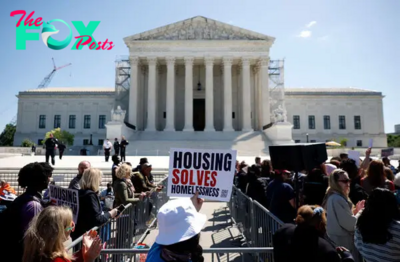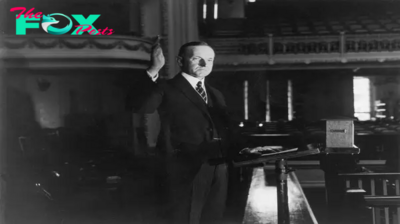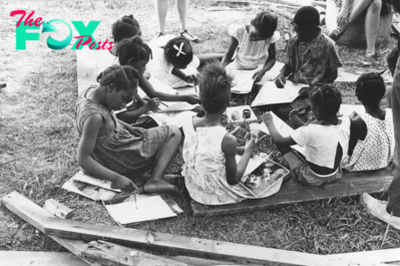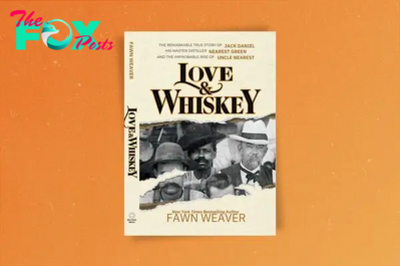History
What I Want My Kids to Know About Our Family’s Dark History
On a cool rainy afternoon in May, one of my children sat down to play the piano. I was sitting in my favorite chair by a window I’d opened to let in the soft breeze while I finished revisions on a book. It was an increasingly rare day in our house in which no one had any plans. The pizza was ordered and the movie picked out, my husband was puttering with his plants, two of the children were playing together, and my oldest sat down at the piano bench.
I was struck, as I so often am, at how much they’ve grown. The years of plunking out “Twinkle, Twinkle, Little Star” had turned into this—a confident kid weaving together melodies on the keys.
I thought: A time I have loved is coming to an end.
I was finishing a book I had spent three years researching and writing, about my ancestors, who lived through extreme iNFLection points in the History of Texas and the United States. I’d gained a bird’s-eye view of centuries’ worth of History, and learned about connections I wanted to share with others: from the genocide of Karankawa people in the 1820s to the murderous manifestos of mass shooters in the 2020s. From the twisty language of my relatives trying to keep people enslaved when Mexico abolished slavery, to the twisty language of politicians today who speak about newcomers as threats while ignoring our own History of immigration. From the profound polarization of the days of the Texas Republic and the violent feuds and the Ku Klux Klan to the profound polarization we see today. In my research and writing, I felt a broad urgency in our own extreme time to understand how we got to this place in our state and our country. But that afternoon, that urgency felt intimate and inward. I wanted to know: how could I be a better ancestor?
It’s a question shared by anyone who cares about kids in the years when they are young—how can we root today’s children in a complex turbulent world so they can grow sturdy, strong, and unquestioningly themselves. So they can thrive in the future to come?
Listening to my child play, I felt a jumble of emotions I couldn’t untangle: A desire to protect my kids but also help them face the truth—and fear that I would mess this up completely.
I called my mom. We talked for a while, and when she asked what was on my mind, I blurted out, “How can I keep from damaging my children by telling them these hard stories about our family? What if all they take away is the bad, and they can’t see the good?”
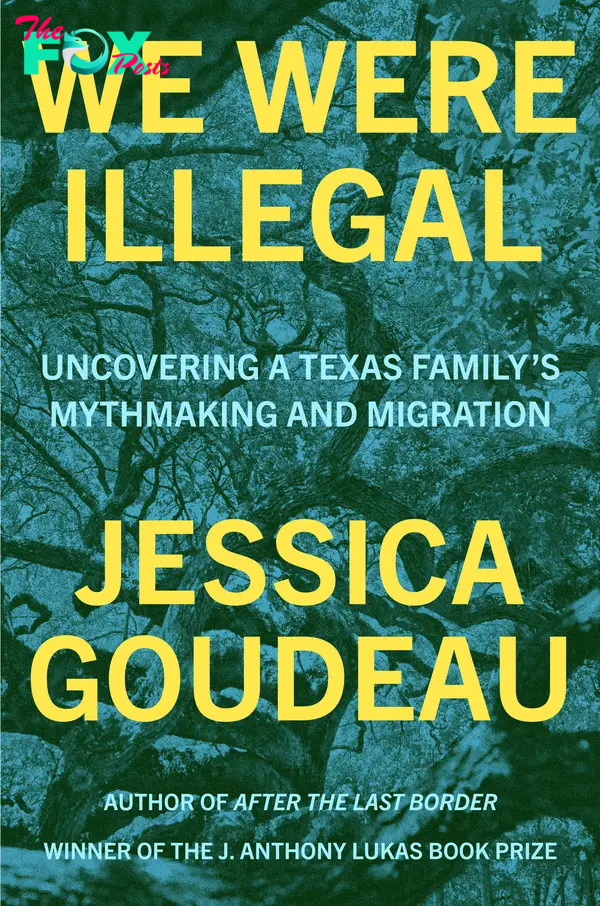
We talked through some of the narratives I was grappling with. I had traced one family line back eight generations to Virginia in the years before the American Revolution—all the way to Slowman Reese. The Reese side of my family had land deeds and birth records and family Bibles and obituaries and gravestones; the centuries of information I have is a sign of later generations’ relative wealth and Education levels. But that was not the case for Slowman, who was deeply in debt and an accused traitor to the revolutionary cause. He also held one of the most hated jobs in a society enlivened by fiery rhetoric about personal freedom, which also happened to oppress half of the population in Virginia: Slowman was a slave overseer.
I would love to pass down a story about how Slowman saw the error of his ways and changed his mind, but that’s not what happened. And I’m uncomfortable with the way horrible views from the past are often dismissed by later generations. When my great-aunt told me about our family’s racist past, she did so with a shrug and the phrase that they were “of their time.” My dad hated the answer his aunt gave, and taught me to ask: “How could we dismiss our family members as being ‘of their time’ when they lived among contemporaries and peers who stood up against injustice in their daily lives?”
Read More: America’s Long Overdue Awakening to Systemic Racism
That’s what happened in Slowman’s life. Through my archival research, I discovered that the preacher at the Presbyterian church Slowman and his family attended was named David Rice. Rice’s salary was paid by profits generated by 14 people the church enslaved. Over time, Rice became a staunch abolitionist. Eventually, he left that church in Virginia but spent the rest of his life in the South, preaching about the evils of slavery until his death—almost 50 years before the Emancipation Proclamation.
That’s the kind of ancestral pivot I wish I could claim, I told my mom, but I cannot. My fifth-great-grandfather did not change his mind like his preacher. Identifying Slowman’s views as awful is only the first step of many; of course enslaving other humans is wrong.
His racism was passed down among his descendants. You can see it overt ways, like the violence of my relatives who lynched and murdered people, or implicit ways, like the redlining by my great-grandfather in my hometown. But the question I was wrestling with was not whether or not I could find terrible things in my family’s past—that had been surprisingly easy. I wanted to know how to pass these stories down, and how to use these stories to change the generational trajectory for those who came after me.
My mom reminded me that, for most of my life, I had known that she had stopped the most vicious cycles in her family, even if I hadn’t realized before I started this book how far back those cycles probably went. She protected us kids in a way no one had protected her: possibly in the entire History of my mother’s family, and certainly in the last few decades, my generation is unique—my siblings, my cousins, and I were not sexually assaulted by a family member.
“Honey, you’re asking the question so many of us parents have wrestled with over the years: how can we build good, Healthy lives on top of the ashes of the past?” Her voice stilled for a minute as she gathered her thoughts. “I’m the granddaughter of a pedophile, but that’s not who I am—not at all. I’m the choices I’ve made to be a loving mother and grandmother and teacher and friend. I don’t feel guilty about the things that my grandfather did, but I also can’t act like those things didn’t happen to me. Recognizing the damage is the only way we can heal, or forgive, or move forward and see the world differently.”
As we talked, I felt my fears calming. I realized the kind of ancestor I want to be: one who finds the moral courage to get all the way to the foundations of the stories that have shaped me, to the beliefs that I hold, and then to change the narratives I tell to the next generations. She agreed. “I don’t want you to be discouraged, Jess. Just because it’s hard doesn’t mean it’s not worth doing.”
The doorbell rang, the dog barked, the piano stopped. I thanked my mom and hung up with laughter while the kids yelled that the pizza was here. That night, as it poured outside, I snuggled in on the couch to watch a movie, grateful to be here in this home where the five of us are a family—right now.
From WE WERE ILLEGAL by Jessica Goudeau, published by Viking, an imprint of Penguin Publishing Group, a division of Penguin Random House, LLC. Copyright © 2024 by Jessica Goudeau.
-
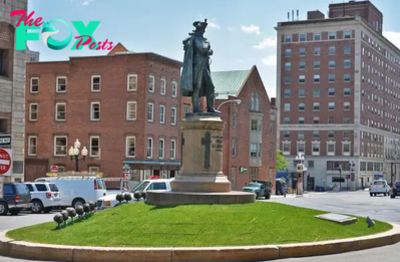
 History1w ago
History1w agoThere’s Still More to Learn From the Debate Over American Monuments
-
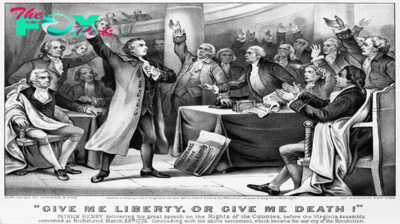
 History1w ago
History1w agoThe True Meaning of ‘Give Me Liberty’
-
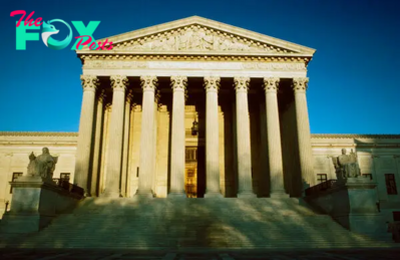
 History2w ago
History2w agoSupreme Court Opinions Don’t Have to Be the End of the Fight for Justice
-

 History2w ago
History2w agoThe History Behind Pride House at the Olympics
-

 History2w ago
History2w agoTV Debates Have Always Been About Sound Bites Over Substance
-
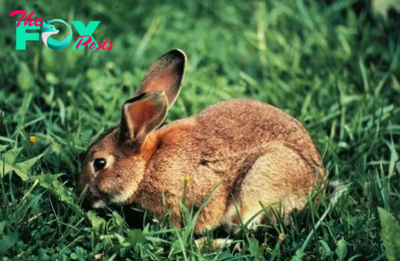
 History2w ago
History2w agoHow Furry Pet Rabbits Can Become Invasive Feral Pests
-
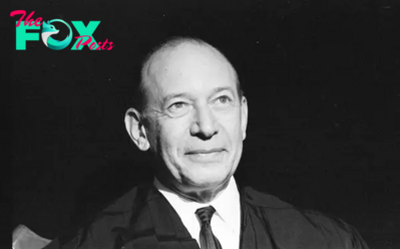
 History2w ago
History2w agoA Mistake in the Early 1970s Still Haunts Supreme Court Ethics
-

 History2w ago
History2w agoThe 2024 Election Could Determine the Future of Capitalism
